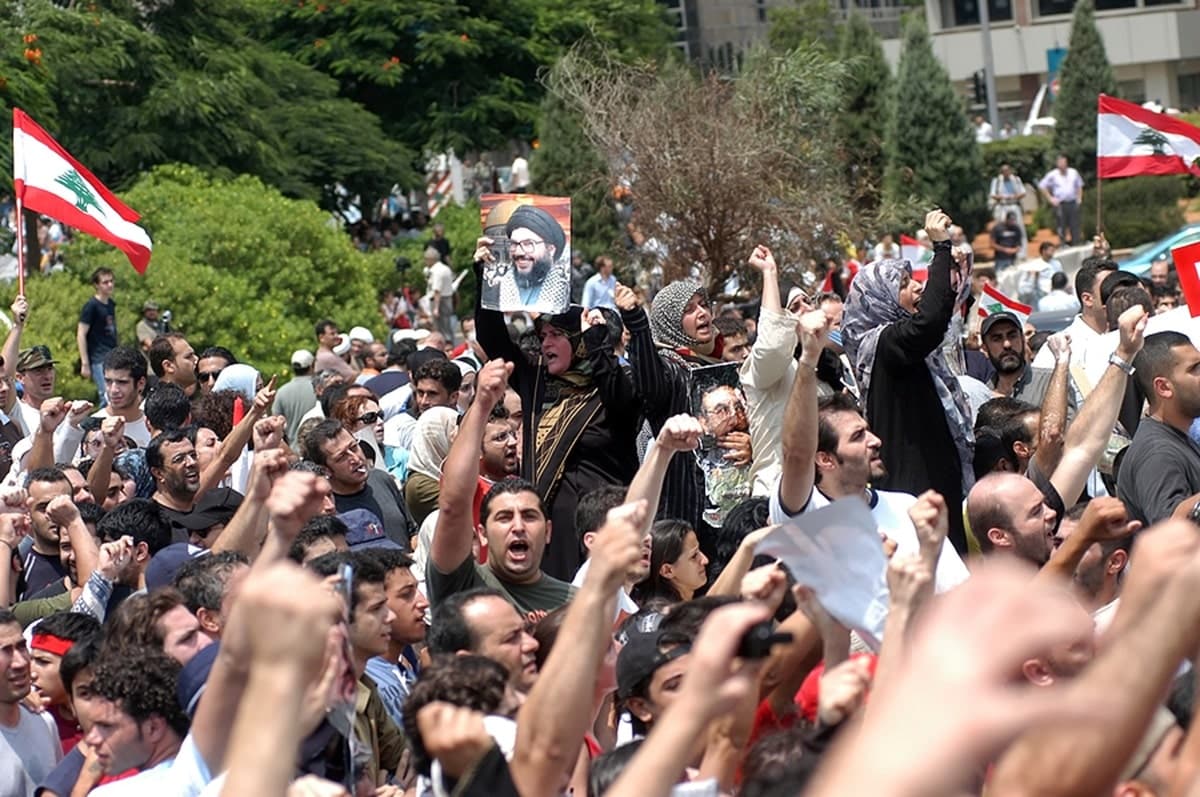
The worn aphorism “the formula must be fundamentally changed” has become something of a cliche used by Israeli decision-makers, yet following that terrible massacre in Majdel Shams, where 12 innocent children lost their lives, it seems as if their room for maneuver has narrowed considerably.
Israel has been mired in a long-standing dogma of containment and proportionality, kicking the can down the road, until the gloomy reality on the other side of the border hit it hardest at dawn time, October 7. The following day, another curtain was drawn wide open, unveiling Hezbollah’s motivation to distract Israel and attempt to lure it into a full-blown two-front war.
The truth is that rather than strategic initiative, Israel has long been accustomed to “buying silence”, counting on its granted military superiority. The Gaza theater was imposed on it, and now the Beirut one could too.
If any, this is “catch 22”, or rather “catch 24”: will summer 2024 usher in a dark new reality in the Israeli home front, pounded by thousands of rockets per day as a result of fully launching a war on Hezbollah, or a swift, American-backed blitzkrieg that will send shockwaves around Lebanon and the region and force Hezbollah’s hand into a long-term cease-fire?
Hezbollah’s Secretary-General Hassan Nasrallah, the true landlord of Lebanon, has long branded himself as the “defender of Lebanon”, yet this inconvenient incident for him left him with no real plans for dealing with two fronts: an Israeli all-out attack combined with a domestic rebellion by Druze communities, completely livid after that terrible massacre of their relatives across the border.
This could also trigger other minorities in Lebanon to rebel against the much-rejected Shi’ite minority now effectively controlling their country, backed by Iranian support.
Hezbollah initially took pride in the incident, saying through its mouthpiece newspaper “Al Akhbar” that it successfully targeted the Israeli post of Maale Golani in the Golan Heights with a 50kg Falaq missile. Later, when the disastrous result turned out, it was quick to disavow it, calling it Israeli misinformation and accusing a mislanded Iron Dome rocket of causing the harm – which no one quite believed.
Meanwhile, livid Druze dignitaries in Lebanon called it no less than a “terrorist attack” and a massacre, without calling Hezbollah by name; while normally loyal Druze elements such as political leader Walid Junbalatt and the Tawhid Al-Arab party were more prudent, much like the Lebanese Foreign Minister, generally condemning any harm of civilians and demanding to hold an open investigation to find out the truth. Nasrallah’s sweat could be discernable from kilometers away.
On its part, Israel is vowing to claim a heavy cost from Hezbollah, and the real question now lies before Israeli decision-makers: will they be forced into making the same decision they avoided for almost 10 months now, and launch an all-out attack on Hezbollah, or take a deep breath and do nothing more than striking more “significant” targets in Lebanon, while signaling Hezbollah with a wink and a nod that it has no intention of going any further?
The coming days will tell. But it is clear that Israel’s can-kicking doctrine over the past 10 months facing Lebanon, carrying out limited airstrikes in response to having 60 thousand of its citizens evacuated, constant attacks by Hezbollah and Iran and dozens of its citizens and soldiers killed and wounded – is no longer tenable.
Over 1,200 significant terrorist attacks were foiled by the Shin Bet just last year in West Bank; and 6,000 targets – missiles, rockets, anti-tank missiles, and suicide drones – were fired from Lebanon just in the past 10 months. Each and every one of them constitutes a declaration of war. One does not need 12 innocent, beautiful dead children to realize this could very well be the result of neglect and containment.
Most pundits and experts exasperatedly ask why a much-expected statistical error such as this had not been quite well known all this time, and why a result, rather than an intention, always pushed Israel to muscle up? Israel now has no time to waste – rather than waiting for Hezbollah to surprise attack, inspired by Hamas’ October 7 massacre, and possibly greenlighted by Iran, it should take the initiative and strike first, under conditions most favorable to it.
The U.S. must also meet the gravity of the moment, and with the momentum of Prime Minister Netanyahu’s address to Congress, not just enable Israel “the right to defend itself” – itself a ludicrous statement – but actively support it. This would include both military strikes and diplomatic ultimatums to Hezbollah’s puppet master, the Islamic Republic of Iran. No “de-escalation” can be achieved in any other way.
This article was originally published on Ynetnews




